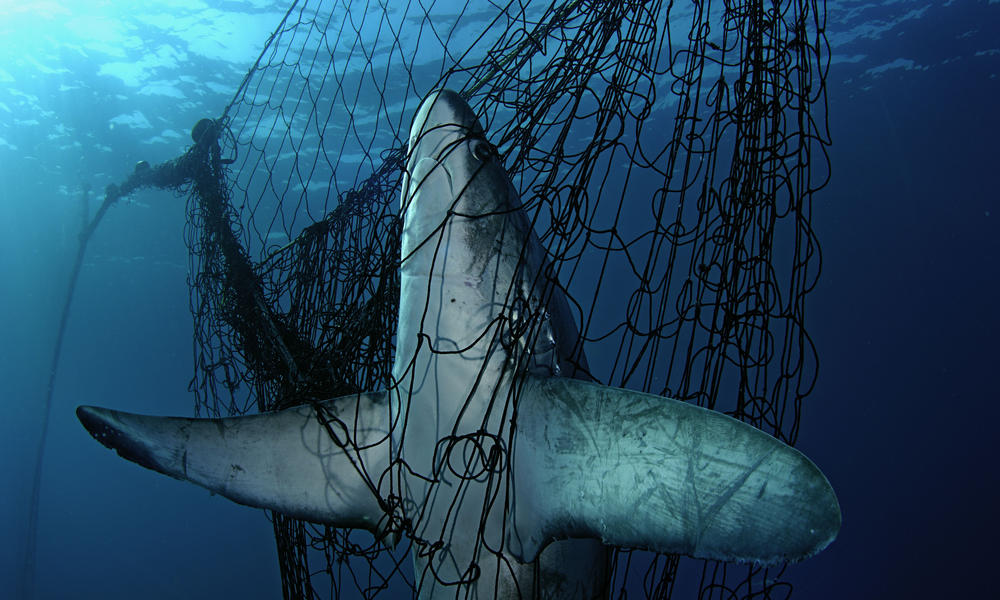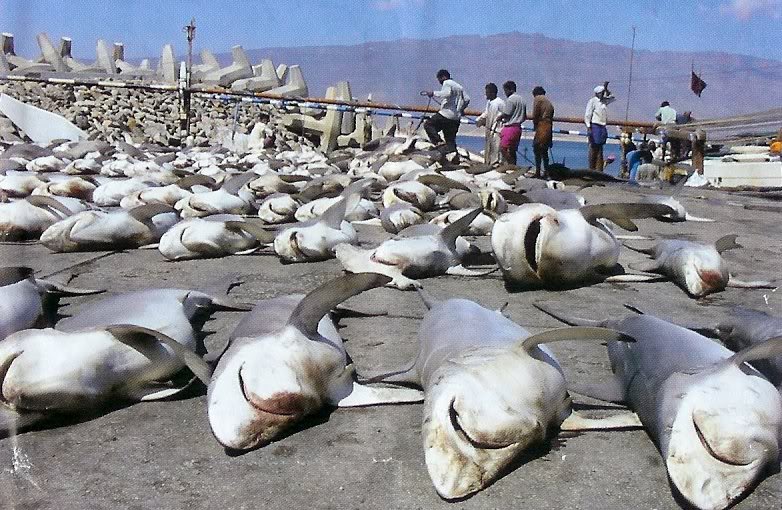Sometimes labelled as dangerous, indiscriminate killers that eat anything in sight, sharks are in fact most often the victims, and are vital for ocean ecosystems.
Merriam-Webster defines the metaphorical word 'shark' like this:
shark noun (2)
- : a rapacious crafty person who takes advantage of others often through usury, extortion, or devious means
Real sharks aren't much like that at all. Despite early work by the likes of Aristotle, superstition rather than study underpinned shark depictions in the ensuing centuries, often as sea monsters or devils. The negative perception of sharks increased during the 20th century, partly due to sensationalised media reporting of tragic-but-rare incidents with sharks and swimmers, but also following the success of the book and film Jaws. (Author Peter Benchley was so horrified by the widespread attacks on sharks that ensued that he became an outspoken advocate for shark conservation.) So, it's not a surprise that we use 'shark' like that metaphorically.
The reality is very different. Here are just a few insights:
- Sharks help tackle global warming. By preventing overgrazing on seagrass meadows - which can store more carbon than forests - by other marine creatures, tiger sharks help make oceans more resilient to climate change.
- Sharks really aren't interested in eating people. Sharks swim into waters where their usual food sources are found, and some of those places often have people swimming. If sharks saw swimmers as prey, we'd hear about it much more frequently. If someone is bitten, it's much more likely to be by mistake.
- Sharks preserve coral reefs. Without sharks, numbers of large predatory fish increase, feeding on herbivores. Fewer herbivores leads to macroalgae expansion, where coral can no longer compete, affecting the survival of the reef system.
At the top of the food chain, sharks are central to maintaining the balance of marine ecosystems. But in the last 50 years, the number of sharks in open oceans has plunged by 71%, with most species threatened with extinction.
- Humans are responsible for killing over 11,000 sharks every hour
- When caught for the widespread practice of shark finning, sharks are thrown back into the water alive without their fins, unable to swim, sinking to the bottom to die of suffocation or eaten by other predators.
- In the north-eastern Altlantic Ocean, 89% of hammerhead sharks and 80% of thresher and white sharks have disappeared in the last two decades as a result of bycatch.
- Ocean warming through climate change threatens marine ecosystem collapse through many factors, but also directly affects the survival chances of baby sharks.
We still might call someone a 'wise owl' even though no-one would actually ask an owl for advice, or a 'vulture' despite the bird's role in helping avoid a public health catastrophe, and the 'shark' epithet is a concise label for a bank like Barclays. Just remember that it's a metaphor, and that real sharks urgently need more protection.

